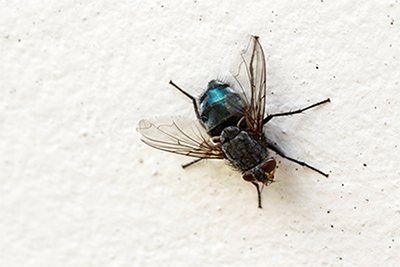 How far back in your past can you remember? If you really stretch your mind, what is the earliest memory that you can muster? For me, I know that somewhere in that nascent cloud of disjointed recollections is a line between actual memory and imagined memory. For instance, I can resurrect a memory of laying in a crib while my mother sang to me. I have know idea if that “memory” is of an actual event or of an imagined one that my mind incorporated as real later in life. But there is one early event that I can recall as clearly as if it happened yesterday. That memory is of the last matrimonial discord that my biological parents suffered prior to their separation and divorce. Without much effort, I can place myself back in the situation and watch the events through four-year-old eyes. The perspective of the scene plays out from beneath the kitchen table where I’d watched and heard the final battle of what I now know was a long and bitter war of attrition. My memory of that day jumps forward to my sitting behind my father on the back of a motor cycle. I stretched my short arms around his waist as the two of us rode away to start a life separate from my mother and sisters”?it was four years more before I saw them again.
How far back in your past can you remember? If you really stretch your mind, what is the earliest memory that you can muster? For me, I know that somewhere in that nascent cloud of disjointed recollections is a line between actual memory and imagined memory. For instance, I can resurrect a memory of laying in a crib while my mother sang to me. I have know idea if that “memory” is of an actual event or of an imagined one that my mind incorporated as real later in life. But there is one early event that I can recall as clearly as if it happened yesterday. That memory is of the last matrimonial discord that my biological parents suffered prior to their separation and divorce. Without much effort, I can place myself back in the situation and watch the events through four-year-old eyes. The perspective of the scene plays out from beneath the kitchen table where I’d watched and heard the final battle of what I now know was a long and bitter war of attrition. My memory of that day jumps forward to my sitting behind my father on the back of a motor cycle. I stretched my short arms around his waist as the two of us rode away to start a life separate from my mother and sisters”?it was four years more before I saw them again.
I’ve often read and heard about the supposed damage that “broken” homes impart upon the children of divorce. Although I know many offspring of divorced parents, I do not purport to speak for others; however, I believe that my personal experience contradicts mainstream opinion on this subject. My father and I settled in the Lower Mainland of British Columbia, while my mother and siblings remained in its interior. From the time I was eight years old and thereafter, my sisters and I would spend a month in the summer with my mother and her new husband; and a month in Vancouver with our father. I suggest that every person can point to more than one example of dissatisfaction with their childhood and upbringing (childhood and pubertal angst is part of the human condition) and I am no exception. But when I compare the childhood that I did have with the one that I likely would have had if my parents had remained married, I shudder to imagine what all of our lives would have been like.
Some people are simply too dissimilar to be able to co-relate amicably; others are polarized so that the question is raised as to how they ever came to be together in the first place. My parents fall squarely into the latter category. Proponents of “marriage until death do us part” would have had my parents stay together “for the good of the family and children”. I cannot disagree more strenuously with such a simplistic, and arguably religion-based view. While there were admitted difficulties related to growing up in a single-parent family, I suggest that growing up in the midst of World War Three would have been far more damaging to my developing psyche. Personally, I am very happy that my parents chose to divorce rather that stay together and subject themselves and their children to a life of dissatisfaction, resentment, and discord; all in the name of the institution of “marriage”.
I am certainly not advocating divorce. To the contrary, I believe that parents should do all that is reasonably possible to make marriage work; both for each other, as well as for their children. But in some cases, I suggest, the damage of remaining together far outweighs the damage of moving apart”?for all concerned. In my case, my parent’s divorce was the right choice for them and me (I won’t speak for my siblings); and it imparted an added benefit to me. When my mother remarried, I gained a wonderful second father, and now my children have another grandfather. I consider myself one of the fortunate progeny of divorce.
Wayne E. Benedict has a varied career history and strong links to the Canadian labour movement. He is working part-time toward his Bachelor of Human Resources and Labour Relations at AU. He is a fulltime first-year student of the University of Saskatchewan College of Law. For a more detailed writer bio, see The Voice writers’ feature page under ‘About The Voice’. If you would like to send article-feedback to Wayne, he can be reached at wayneben@sasktel.net


